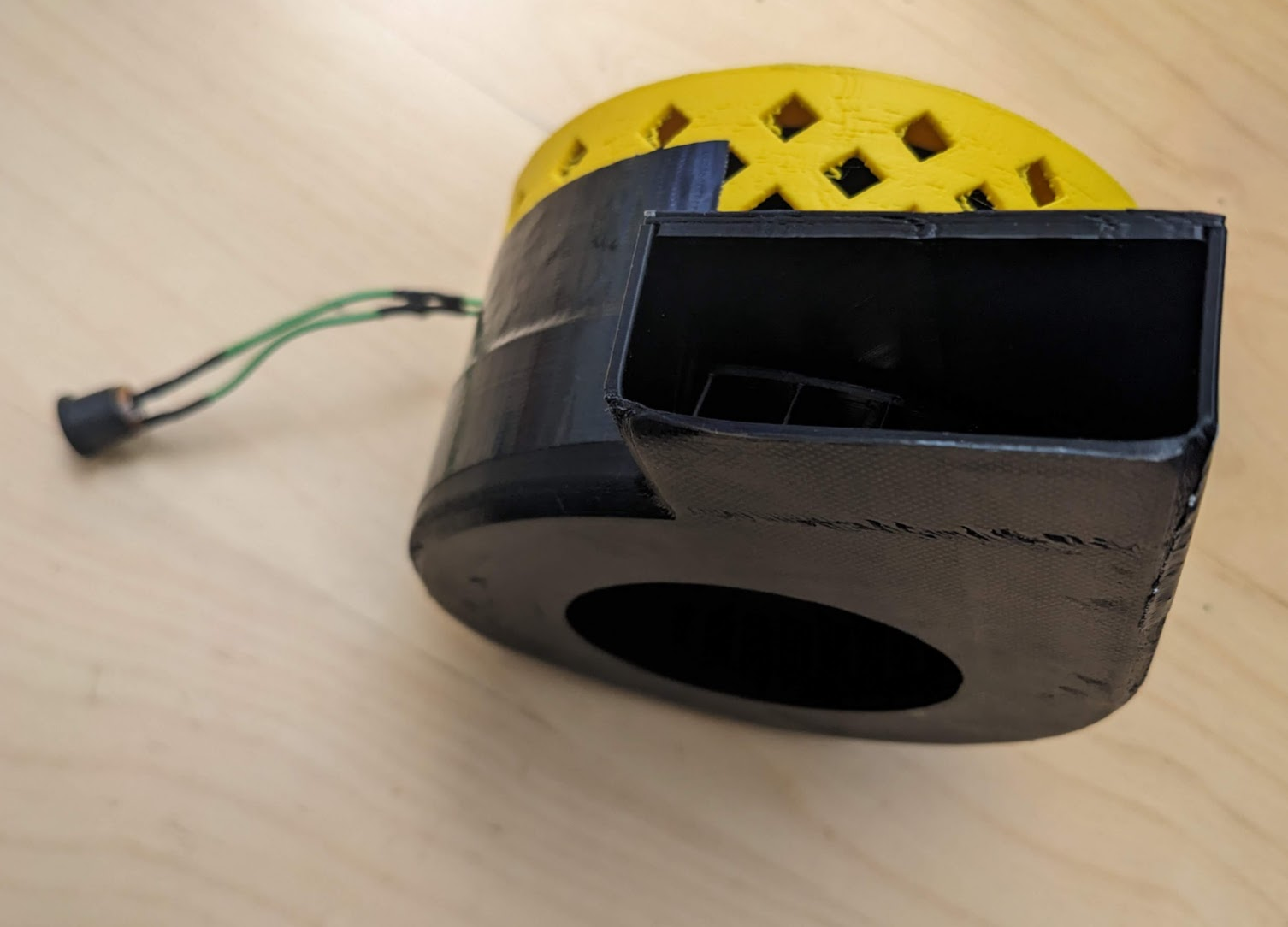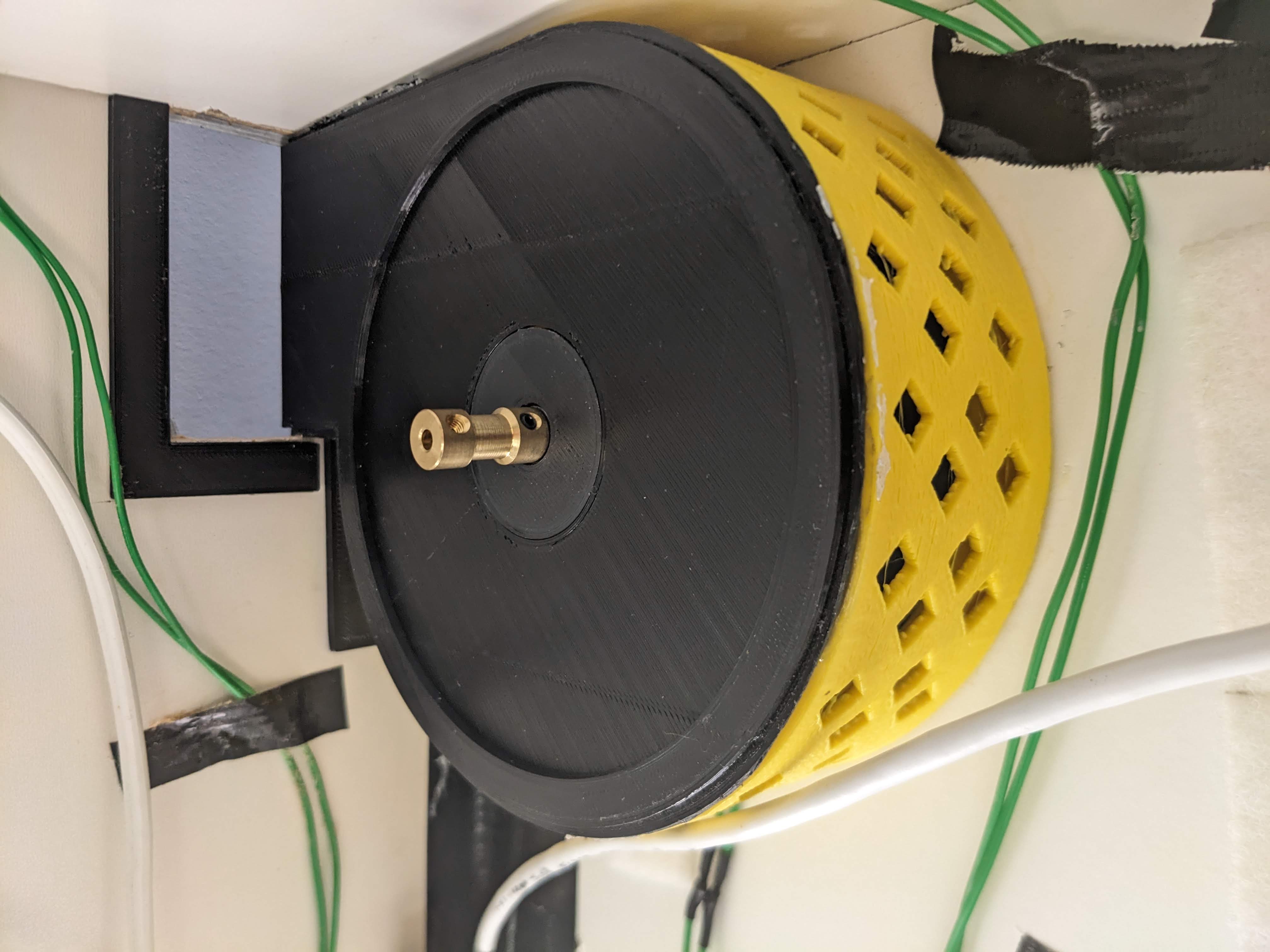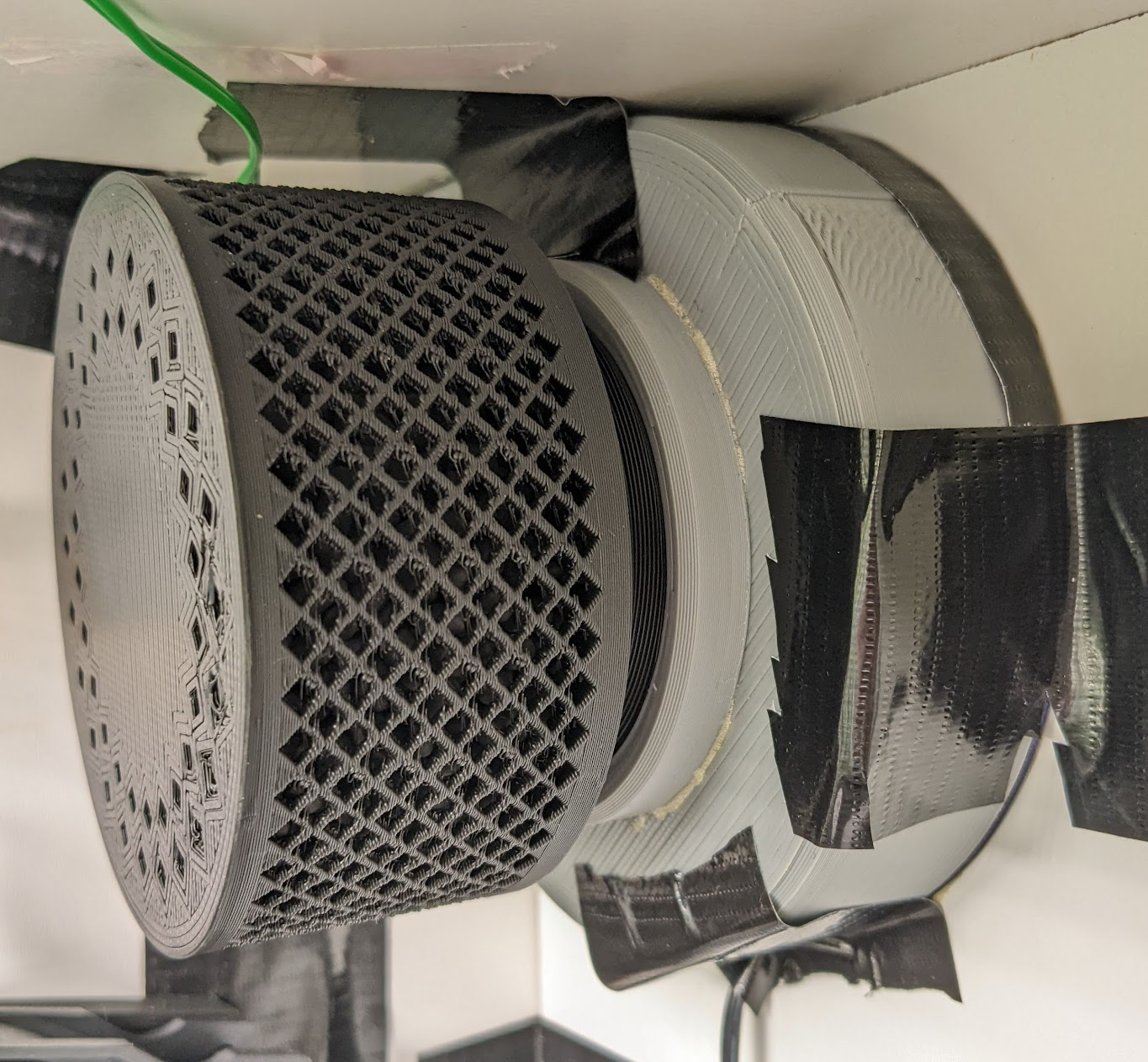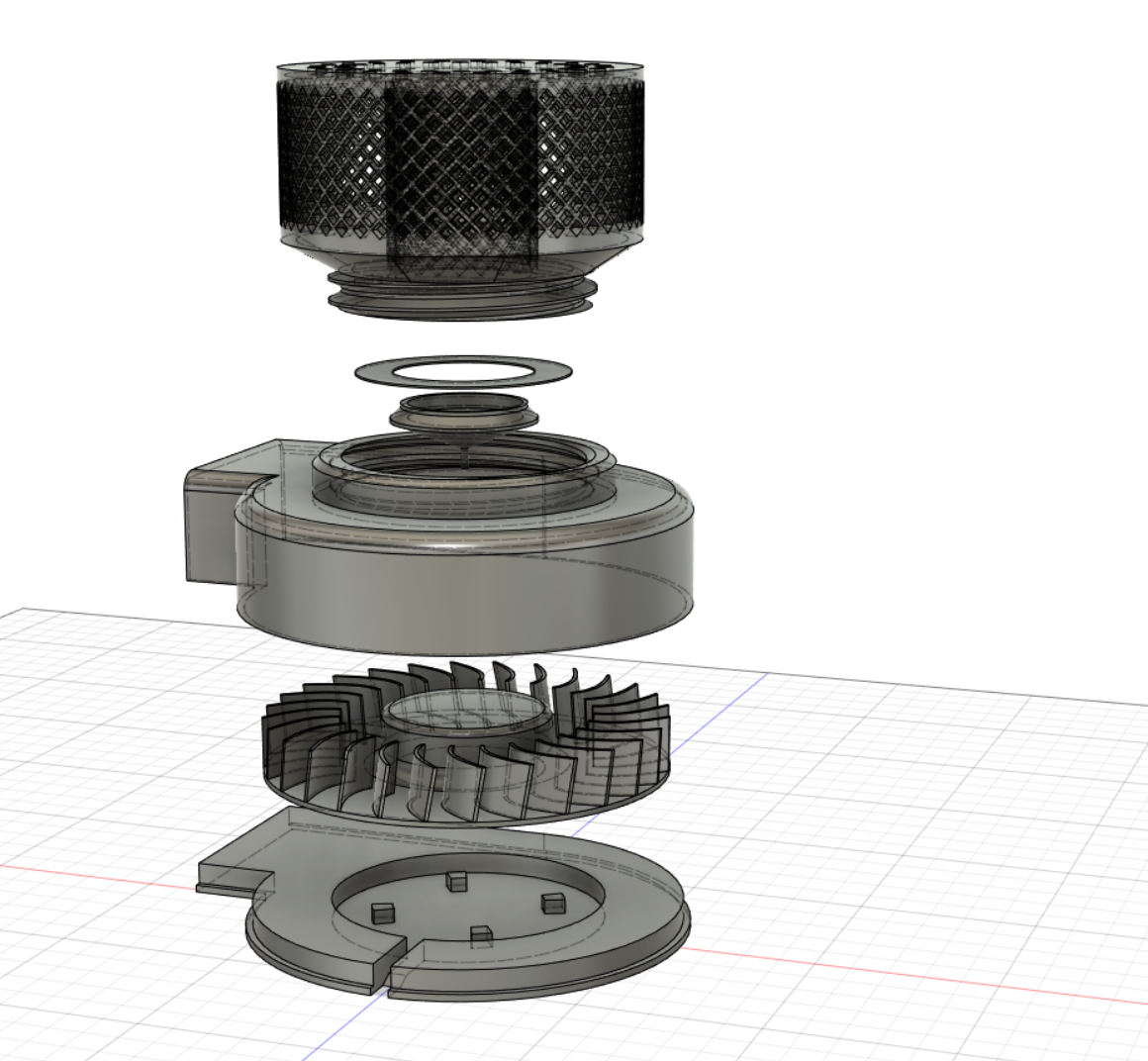Carbon filter: Difference between revisions
(Full fan assembly instructions) |
m (→Build steps:: Added picture) |
||
| Line 27: | Line 27: | ||
3. Insert the motor all the way into the [https://cannawiki.net/wiki/index.php/File:385_Motor_holder.3mf Motor holder] and snap the motor holder into the case walls. It should be a press fit (Optionally add a dab of superglue to the bottom of the motor to help it stay in the motor holder. |
3. Insert the motor all the way into the [https://cannawiki.net/wiki/index.php/File:385_Motor_holder.3mf Motor holder] and snap the motor holder into the case walls. It should be a press fit (Optionally add a dab of superglue to the bottom of the motor to help it stay in the motor holder. |
||
| + | [[File:385 fan mid assembly.jpg|thumb]] |
||
| − | |||
4. Add the [https://cannawiki.net/wiki/index.php/File:385_case_bottom.stl Case bottom] on top of the case assembly so far. It should sit flat on the [https://cannawiki.net/wiki/index.php/File:385_Case_wall.stl Case walls] and be flush with the top of the motor holder |
4. Add the [https://cannawiki.net/wiki/index.php/File:385_case_bottom.stl Case bottom] on top of the case assembly so far. It should sit flat on the [https://cannawiki.net/wiki/index.php/File:385_Case_wall.stl Case walls] and be flush with the top of the motor holder |
||
Revision as of 20:35, 2 November 2023
Typically, in indoor grows, the smell produced by a flowering plant is undesirable to have outside of the growing environment, this has spurred the invention of filters utilizing activated carbon to absorb this odor.
385 motor Fan

This is a centrifugal fan that can be 3D printed and is compatible with the Cannawiki grow controller. A motor driver such as the TB6612FNG is required so that it can be controlled. This fan is designed for the 385 motor to be driven at 12V.
This fan is also compatible with the filter below
Parts
- 385 Motor
- Case bottom (3D printed)
- Case top (3D printed)
- Case walls (3D printed)
- Fan blades (3D printed)
- Motor holder (3D printed)
- 2.3mm to 5mm ridged shaft coupling
- 5mm * 20mm thread rod (Or M5*20mm bolt with the head cut off)
- M5 Nut
- 12v female barrel jack
Build steps:
1. 3D Print all parts that require printing
2. Solder wires onto the 385 motor if it doesn't already have them. (Optionally on the other end solder a 12V barrel jack)
3. Insert the motor all the way into the Motor holder and snap the motor holder into the case walls. It should be a press fit (Optionally add a dab of superglue to the bottom of the motor to help it stay in the motor holder.

4. Add the Case bottom on top of the case assembly so far. It should sit flat on the Case walls and be flush with the top of the motor holder
5. Add the shaft coupling to the motor and tighten the grub screws. On the other end of the coupling insert the 5mm * 20mm rod, again tighten the grub screws
6. Add Fan blades and tighten the M5 nut to secure them
7. Cover with Case top. This can be secured with tape so that the fan is easy to open up if needed
120mm PC fan conversion kit


This fan is designed to be 3D printed and used as an exhaust fan with a filter using activated carbon pellets.
Steps
1. Take a standard 120mm PC case fan and remove the power cable from the frame of the fan. Cut the motor out of the frame with snips or a saw. Next, remove the fan blades from the fan hub. You may have to sand down the hub of the fan to remove the stubs of the fan blade.
2. 3D print parts
- Filter chamber
- Filter chamber lid (print on 0.1 layer height)
- Filler tool (optional, to make filling the chamber easier)
- Screw thread
- Fan case top
- Fan blades
- Fan case bottom
3. Glue the screw thread to the case top model so that it aligns with the hole and leave it to dry.
4. Glue the motor from the fan in the center of the fan case bottom. The stubs around the center should help to line it up. The cable should exit the fan case from the bottom.
5. Glue or press fit the fan blades onto the hub. Make sure the old fan blades are really removed from the hub, sanding will help.
6. Place the case top onto the assembled fan and seal around the edges with tape.
7. To fill the filter chamber with carbon pellets place the filler tool in the cavity of the filter chamber. The filler tool is just there to stop the pellets from getting into the central cavity.
8. Remove the filler tool and put the chamber lid in the mouth of the filter chamber. It should be flexible enough to bend into place under the tabs on the inside of the screw.
9. Screw the filter chamber onto the fan body. Unscrew and replace the carbon pellets every 6 months or when the filter becomes ineffective.